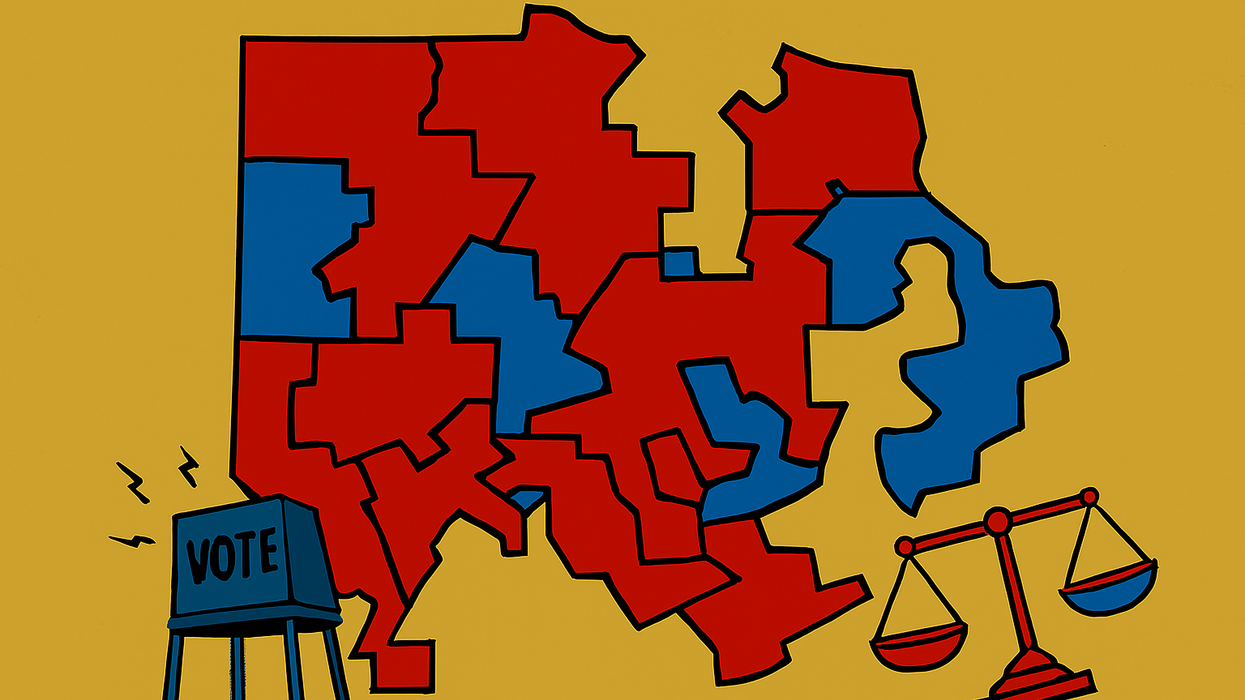The partisan fight to draw maps that determine how Americans are represented has entered a dangerous spiral. Texas is racing ahead with a mid-decade congressional redraw designed to lock in additional seats after President Donald J. Trump called upon state lawmakers to find five seats. California’s leaders responded in kind to offset the Texas map, but will hold a special election in which voters must decide whether to put aside the state’s Congressional maps drawn by an independent redistricting commission for the next three election cycles. Other states are openly weighing similar moves. But this “map wars” logic is dangerous, and voters from all backgrounds stand to lose as districts harden into safe seats and politicians’ accountability to voters further withers.
Large majorities of Americans say that gerrymandering — which lets politicians pick their voters instead of the other way around — is unfair and a problem. When politicians and party insiders draw their own districts, the maps can be engineered to protect incumbents, not voters. As a result, gerrymandering contributes to the erosion of public confidence in elections. It lessens people’s sense that change can happen, and reduces the ability of voters to hold leaders accountable.
At a moment when the public expresses wide dissatisfaction with how democracy is working, voters’ practical ability to sanction or replace unresponsive leaders is critical. Gerrymandering entrenches incumbents by design, converting general elections into “safe” seats and shifting accountability to narrow primaries. When districts are engineered to be noncompetitive in November, the decisive contest moves to low-turnout primaries, where smaller, less representative electorates set the outcome. As a result, elected leaders face weaker incentives to answer to the broader electorate in their district.
Furthermore, scholars have linked electoral competition to specific behaviors, such as attentiveness and service. With fewer close races, representatives have less incentive to adjust to district preferences or provide constituent services—consistent with findings that gerrymandering produces less-responsive representation, even when national seat totals barely change. Safe districts lower the probability that voters can oust an elected leader who is not responsive to their needs or doesn’t perform well.
National evidence shows the share of competitive districts shrinks under partisan map-drawing, with candidates increasingly catering to primary electorates rather than general-election voters. Conversely, evidence suggests that when states remove partisan control from redistricting, for example, by using independent commissions, close contests become more common and incumbent party wins fall. Some critics of commissions claim they are a mirage, pointing to weak models that have left politicians in charge. That’s precisely the point: design matters. Commissions that remove partisan vetoes, work in the open, and follow voter-protective criteria produce fairer, more competitive maps than legislative self-dealing.
In addition, gerrymandering fractures communities, especially communities of color, thereby reducing their ability to hold representatives accountable or reward them. Cracking and packing dilute a community’s ability to elect a candidate of choice, undermining the threat of replacement that underpins accountability. (This is why Section 2 of the Voting Rights Act focuses on vote dilution, and recent enforcement has measurably increased participation where remedial districts were drawn.)
The current gerrymandering wars illustrate the consequences of this issue. In Texas, voting-rights groups have sued, arguing the new map will prevent Black voters from electing candidates of their choice. In California, the very idea of suspending an independent commission to pursue a partisan counter-map has drawn fire across the civic spectrum. Treating redistricting as retaliation doesn’t correct the problem; it normalizes it. Courts can police some abuses (for example, racial vote dilution), but the Supreme Court has said federal courts won’t referee claims of pure partisan gerrymandering. That leaves a large gray zone and a perpetual arms race where the rules depend on who holds power unless states adopt durable guardrails themselves.
Democracy is a promise that power originates from the people and can be reclaimed by them. Accountability is how that promise is kept. Without it, elections are merely a formality, and representation is simply a label, not a reality. Accountability requires contestability: when a realistic chance of being replaced exists, elected leaders have reason to listen and adapt. Gerrymandering’s purpose is to reduce contestability by insulating seats from swings in voter opinion, shifting power to narrow primaries, and diluting cohesive communities, thereby predictably weakening electoral accountability.
The choice is not between one party’s gerrymander and the other’s; it’s between a permanent power struggle and a system built for and accountable to voters. Indeed, a Utah court just reminded the country who holds the pen in a democracy when it struck down its 2021 congressional map and ordered new lines consistent with voter-approved reforms, affirming that the people are the locus of political power and have a constitutional right to reform their government. The longer we fight fire with fire, the more scorched our democracy becomes. The better path forward is fair maps, drawn in public, by institutions answerable to the people, and an upgrade in how we elect leaders so that leaders are responsive and accountable to the broader electorates they serve.
Carah Ong Whaley is executive director of Better Choices for Democracy, a national nonpartisan reform organization working on election system reform.





















